© Robert Malone for photos and commentary
All rights of reproduction reserved.
This page presents the photos taken by Mr Robert Malone of CDs in his personal collection. He holds the copyright for all of them.
Each photo is accompanied by Mr. Malone’s own commentary.
We are most grateful to Mr. Malone for sending us scanned copies of the photos and granting us permission to reproduce them on our site.
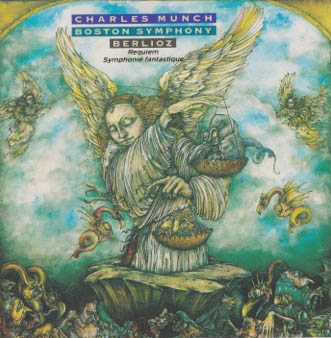
Requiem, 26 and 27 April 1959; Léopold Simoneau, tenor. Also on this set is Munch/BSO Symphonie fantastique from 14 and 15 November 1954. This was a CD set from 1987. The album art is certainly strange.
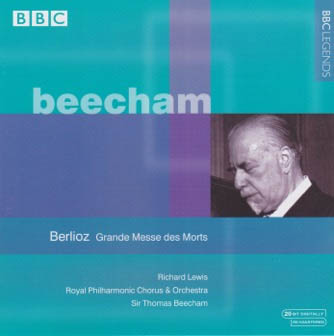
Live, from 13 December 1959; a great, late, performance by Beecham (his last concert was on 7 May 1960, and he would die about 10 months later).
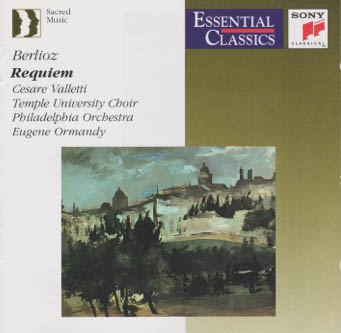
Recorded on 1 and 2 April 1964; a CD re-issue.
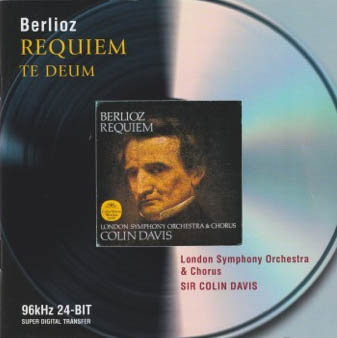
Requiem, Op. 5, recorded on 17-18, 21-22, and 24-26 November 1969, Ronald Dowd, tenor (small insert on cover of the Philips set shows the original cover art); Te Deum, Op. 22, recorded on 5-6 January 1969, Franco Tagliavini, tenor, Nicolas Kynaston, organ.
Colin Davis later made two other recordings of Te Deum:
3 and 4 October 1998, with Kinderchor des Dresdener Philharmonie; Singakademie Dresden; Chor der Sächsischen Staatsoper; Neill Stuart (tenor), Hans-Dieter Schöne (organ); Profil Medien, PH06039 and
23 and 24 February 2009, with Eltham College Choir; London Symphony Chorus and Orchestra; Colin Lee (tenor), John Alley (electronic organ); LSO Live, LSO 0766; 2014 release.
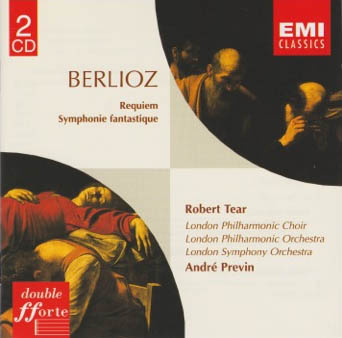
Requiem, April 1980, Robert Tear, tenor; Symphonie fantastique, May and December 1976.
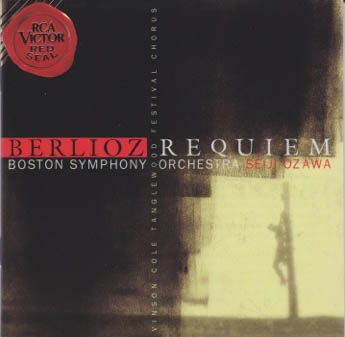
October 1993; Vinson Cole, tenor.
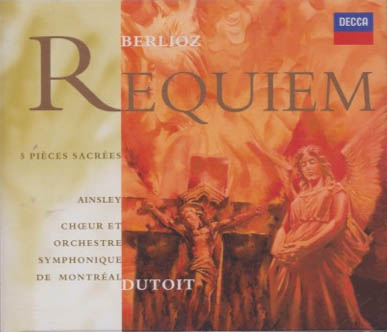
28-30 May 1997; John Mark Ainsley, tenor. Also on this 2-CD set: Veni creator; Tantum ergo; Pater noster (by Dmitri Bortniansky, arranged Berlioz); Adoremus (by Dmitri Bortniansky, arranged Berlioz); and Resurrexit.
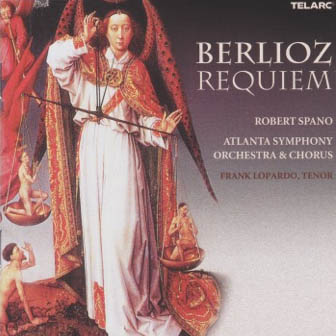
8-9 November 2003
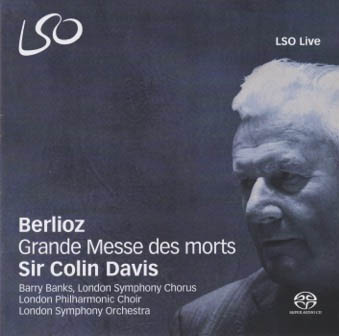
Performed and recorded live on 25 and 26 June 2012 at St. Paul’s Cathedral, London. It appears this was Sir Colin Davis’ last recording, and I believe his last appearance with the London Symphony Orchestra.
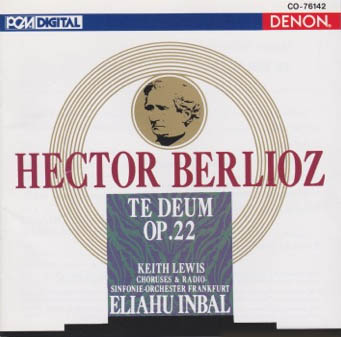
Te Deum, Op. 22; 25/26 February 1988; Keith Lewis, tenor; Matthias Eisenberg, organ. This is the first complete recording I know of. It contains the 2 optional orchestral movements: Prélude (which is actually specified to be the 3rd movement) and Marche pour la présentation des drapeaux (a ceremonial closing piece). This is my favourite recording of the work.

19 and 20 February 2000; Roberto Alagna, tenor; Marie-Claire Alain, organ. Another recording of the work complete with the 2 optional movements.
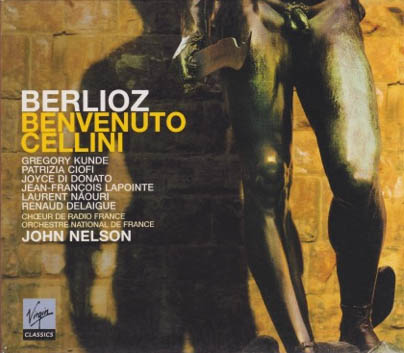
What is stated to be the world premier of Berlioz’s first version (Paris 1, 1834) of Benvenuto Cellini was not given until 8 December 2003 under the direction of John Nelson. This recording followed 8-13 December 2003, released on Virgin Classics, 3 compact discs. This recording contains almost a half-hour more music than is present in the more commonly heard later Weimar version of the score, and also features an Overture that is slightly longer and a bit different from the concert version everyone is familiar with.
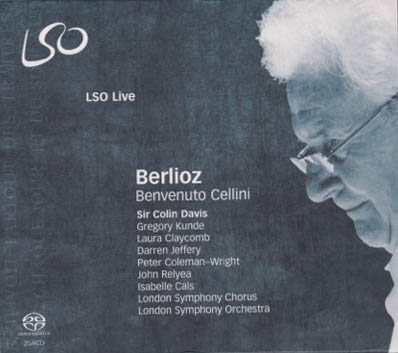
On LSO Live, from performances of June 2007, this is Colin Davis’ second recording of the opera. The first was made July 1972 as part of his Berlioz cycle for Philips. My research suggests that the first Davis was an edition from 1966 and 1969 Covent Garden productions, the score being a reconstruction of the one of 1838 (Paris 2) but with some references to the earlier 1834 score and changes from 1852 (Weimar 2). This 2007 recording is thought to use the same score Davis observed in 1972, but that is uncertain. The history of this opera is quite tortured and very confusing! (There was also another version from 1852 Weimar 1 which was a translation into German.) [On Benvenuto Cellini see elswehere on this site]
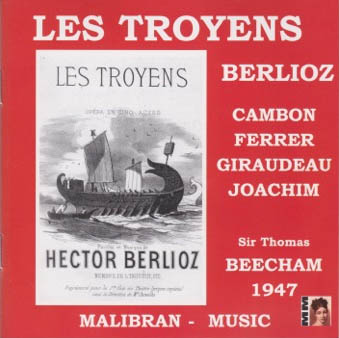
The source of the legendary Beecham performances were broadcasts of 3 and 6 June and 2 and 4 July 1947. It is believed that this was of the complete score [Note by Michel Austin: its was not complete]. Pictured here is a French release, Malibran, on 3 compact discs, which is about 4 minutes shorter than another release on a label called Somm. This Malibran is missing a couple of short orchestral movements from 1st Act. It must be wondered if different sources were used. There were also releases of this on long-play records, including one in the early 1980s from the Sir Thomas Beecham Society (now defunct).
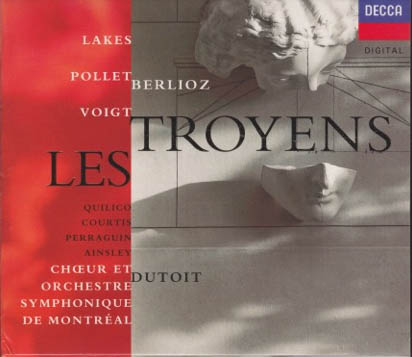
The Berlioz cycle from Decca featuring Charles Dutoit in Montreal was not completed per original plans. This was the only opera which came from that source, recorded on 7-23 October 1993. This recording features a six-minute scene which had been cut by Berlioz, re-orchestrated by another hand, and added back in. It also has the so-called overture to The Trojans at Carthage which Berlioz had composed for performances of just Acts 3-5 in 1863. It is thus a bit more “complete” than those of Colin Davis.
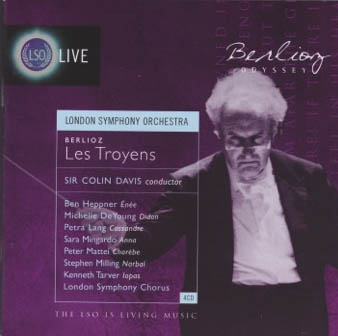
From LSO Live, performance of December 2000. Davis had made a previous recording as part of his Berlioz cycle for Philips.
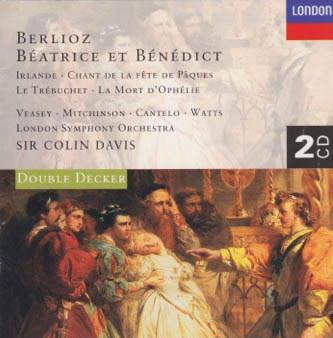
Béatrice et Bénédict as recorded under the direction of Colin Davis on 22-24 April 1962, original LP release on L’Oiseau Lyre SOL 256-7. This is a recording of the music only, without the spoken dialogue. Pictured here is a re-issue on CDs by Decca. This particular fine set of CDs also contains the complete set of Neuf Mélodies, later re-titled Irlande Op. 2, along with Le Trébuchet, La Mort d’Ophélie, and Chant de la fête de Pâques, with vocal soloists April Cantelo, Helen Watts, Robert Tear, and Richard Salter; Viola Tunnard, piano; and The Monteverdi Choir directed by John Eliot Gardiner; recordings from 1967, originally on L’Oiseau Lyre SOL 305. This is altogether an outstanding compilation.
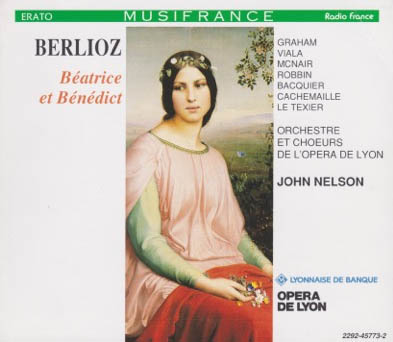
Erato recording of March 1991. This is the only truly complete recording in that it provides all of the extensive spoken dialog. The singing and speaking roles are taken by different persons.
![]()
© Unless otherwise stated, Monir Tayeb and Michel Austin. All rights of reproduction reserved.